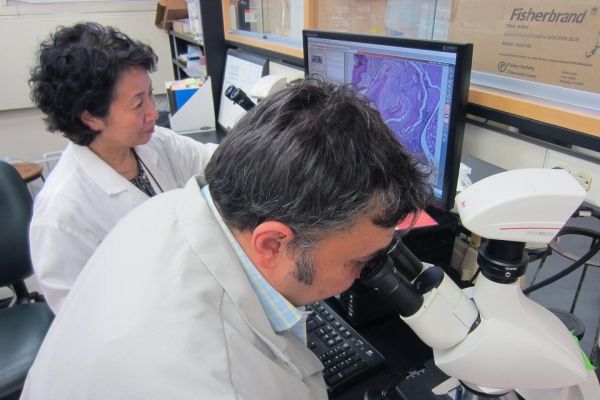Long-term exposure to periodontal disease bacteria causes inflammation and degeneration of brain neurons in mice that is similar to the effects of Alzheimer’s disease in humans, according to a new study from researchers at the University of Illinois at Chicago.
The findings, which are published in PLOS ONE, suggest that periodontal disease, a common but preventable gum infection, may be an initiator of Alzheimer’s, which currently has no treatment or cure.
“Other studies have demonstrated a close association between periodontitis and cognitive impairment, but this is the first study to show that exposure to the periodontal bacteria results in the formation of senile plaques that accelerate the development of neuropathology found in Alzheimer’s patients,” said Dr. Keiko Watanabe, professor of periodontics at the UIC College of Dentistry and corresponding author on the study.
“This was a big surprise,” Watanabe said. “We did not expect that the periodontal pathogen would have this much influence on the brain, or that the effects would so thoroughly resemble Alzheimer’s disease.”
Read more at University of Illinois at Chicago
Image: Drs. Keiko Watanabe and Vladimir Ilievski study periodontitis bacteria. (Credit: UIC/Chris Bevel)


